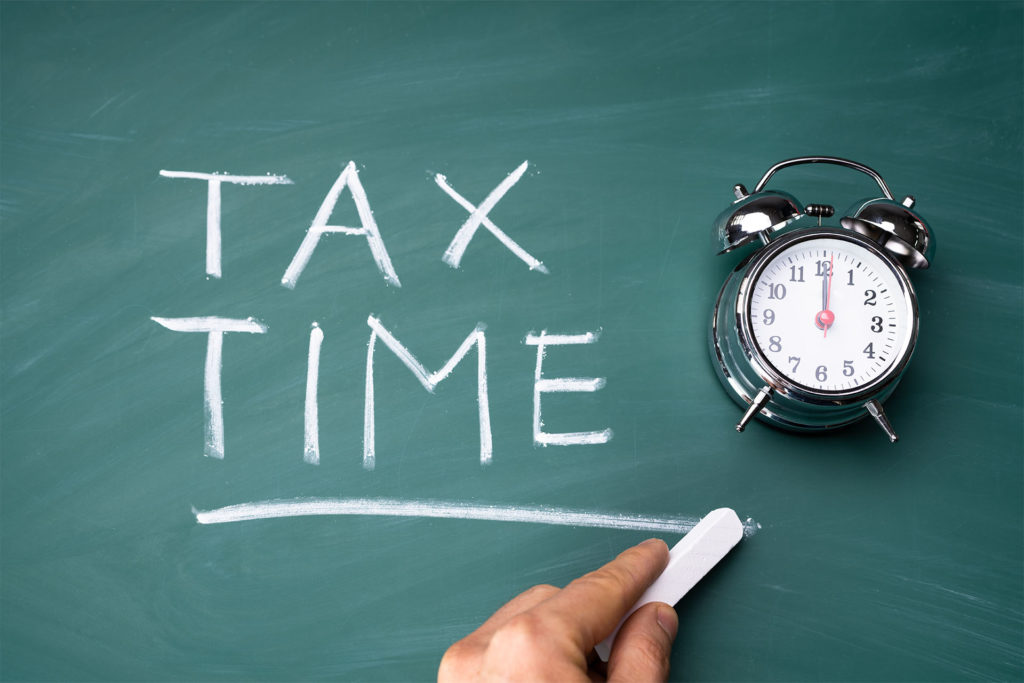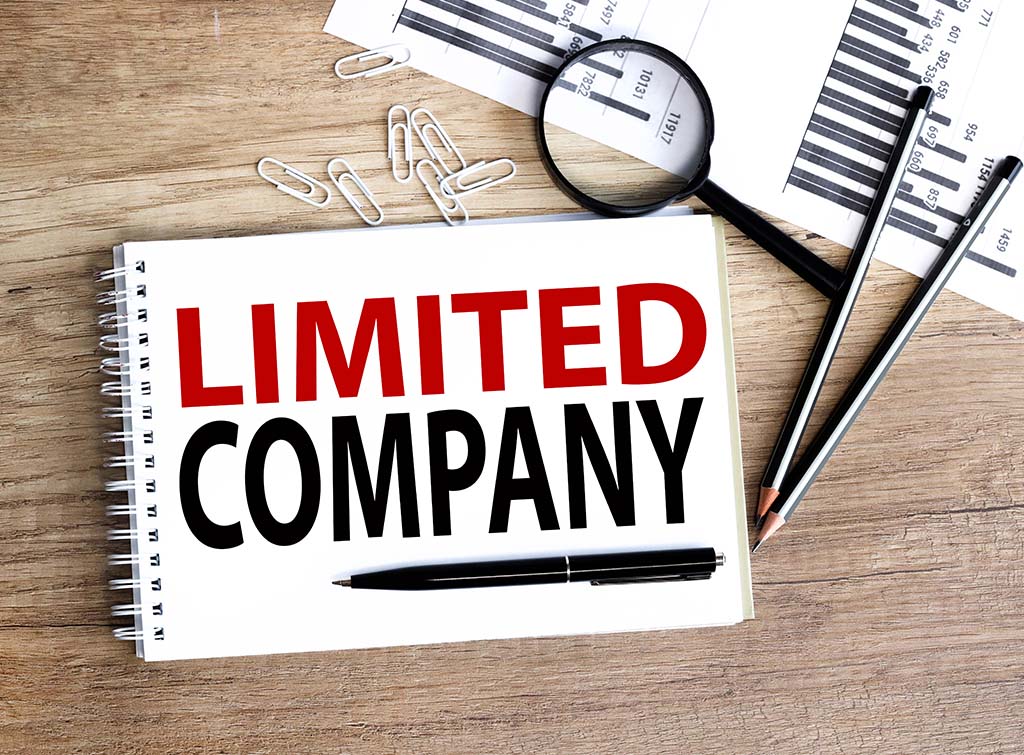Should I be a sole trader or a limited company?

In this article, we'll cover:
- The difference between a sole trader and a limited company
- Being a sole trader or a limited company: Which is more tax efficient?
- What’s the most tax-efficient way to take money out of a company?
- When should you change from a sole trader to a limited company?
- Reasons people change from a sole trader to a limited company
- The disadvantages of changing from a sole trader to a private limited company
Starting up, looking to grow, or wanting to learn the difference between a sole trader and a limited company? We’ve got you covered.
Find out the difference between a sole trader and a limited company in this article. Then, you can understand what’s right for you and your business.
The difference between a sole trader and a limited company
This table shows the difference between being a sole trader vs a limited company.
| Sole Trader | Limited Company | |
|---|---|---|
| What are the differences between a sole trader, partnership and limited company? | Considered to be ‘self-employed’, sole traders must be registered with HM Revenue & Customs (HMRC) for self-assessment before beginning to trade. | An incorporated company, which is limited by shares. The company needs at least one director and a guarantor, but the same person can do both tasks. Those working for limited companies are considered employees. This can also apply to Directors, but they will hold the status of ‘office holder’. |
| Who is liable? | As a sole trader you will be responsible for any losses or debts acquired by your business. In very bad circumstances, some sole traders are forced to apply for bankruptcy. | Directors of limited companies cannot be held personally responsible for any incurred debts, unless they have signed a personal guarantee. |
| Tax on profits | Sole traders pay tax at the same rate as employees. Meaning they are only affected by income tax rates. Sole traders have a tax-free allowance of £12,570, unless they have an income of above £100,000. | Will be required to pay 19% on all profit levels. This doesn’t include any tax-free allowance and will apply to all profits. Corporations aren’t required to pay income tax and National Insurance. In addition, the directors of the company will be liable for personal tax on any salary they pay themselves, or any dividends they take. |
| Borrowing | There are a number of secured and unsecured loans on offer to sole traders. Short-term unsecured loans are great for easing cash-flow problems. You can also use peer-to-peer platforms to borrow money from investors. | Can apply for secured or unsecured loans, with larger amounts available for big firms. Additionally, individuals are able to loan money from a limited company but only if you can be sure it won’t affect your ability to pay tax on time. |
| Pension | Owners are entitled to the State Pension but will often need to save additional amounts to sustain standard of life. Over two-thirds of self-employed people are seriously concerned about saving for later life. | Employees of limited companies can invest up to £40,000 each year, until a limit of £1.05m is reached. You can also contribute any pre-tax company income straight into the pension. |
| Paying yourself | Don’t receive a salary or wage but can withdraw money from their business as a means of personal expense. It’s important to use a separate business bank account for sole trader accounts and it’s crucial that you keep on top of your bookkeeping. | Adding a Director to the payroll can make tax complicated. Instead, look to pay a year-end dividend. If your yearly dividend is less than £37,500 it will be charged at 7.5% tax. A yearly dividend of less than £150,000 will be charged at the higher rate of 32.5%. Finally, if you receive over £150,000 in yearly dividends you will be required to pay an additional rate of 38.1%. |
| Expenses | You can deduct the costs of allowable expenses from your taxable profit. Small firms can claim things like office, travel, clothing, staff and training courses as a business expense, which will can be deducted from your firm. | As with other forms of business, you can claim for expenses that relate to running your company. You can even claim to host an annual event – most commonly a Christmas party, however, costs incurred entertaining clients at dinner are normally not included. |
| Selling the business | It’s possible to sell your sole trader business, either for the price of its assets or a mutually agreed sum. It can be difficult to decide on a fair market valuation, but there are some online resources available to help. | Once incorporated, limited companies can be sold to other people just like any other form of property. As long as you’re the sole director, you can sell the business however you see fit. |
Whether you stay as a sole trader or become a limited company
Get more work with the #1 trade directory
Join Checkatrade todayBeing a sole trader or a limited company: Which is more tax efficient?
The legal structure of your business will have an impact on how you are taxed. So, you’ll be wondering how this impacts your business.
Do you pay less tax as a limited company?
So when it comes to a sole trader vs a limited company, which is more tax-efficient?
It’s more tax-efficient to be a limited company. Although sole trader tax can be beneficial, it’s less efficient in comparison.
- A limited company pays corporation tax rather than income tax, and income tax is generally charged at a higher rate.
- A limited company can also reduce the amount of tax it pays. This is due to the tax allowances and tax-deductible costs it can claim against.

What’s the most tax-efficient way to take money out of a company?
The most tax-efficient way to take a salary from a limited company is to draw a low salary from the company and take the rest in dividends.
But what are dividends? These are ways for a limited company to distribute its profits to its shareholders.
Dividends are taxed, but there are ways to minimise the amount of tax you pay:
- Use your tax-free dividend allowance.
- Use your personal, tax-free allowance.
- Keep your shares or funds in a stocks and shares ISA.
When should you change from a sole trader to a limited company?
When people start their business, they generally start as sole traders.
But as the business grows, so does the level of personal responsibility for losses and tax. And this isn’t just referring to sole trader self-assessment forms.
So, it’s usually at this point that tradespeople change from a sole trader to limited company.
Incorporation
As a sole trader, you and your business are the same from a legal point of view.
When you change from a sole trader to a limited company, you become a separate legal entity to your business.
Reasons people change from a sole trader to a limited company
There can be disadvantages of being a sole trader.
So if these outweigh the advantages, changing from a sole trader to a limited company might be the answer.
These are some reasons why businesses change to become a limited company:
Greater tax efficiency
This is often a key consideration for those changing from a sole trader to a limited company.
However, incorporation gives the company owners limited liability protection.
This means that if the company is sued, your personal assets are kept separate. It gives you greater protection as an individual.
Financial investment
Financial investment is another reason people switch from a sole trader to a limited company.
Becoming a limited company allows you to seek investment by selling shares in the company.
Being able to secure your company name is also an attractive reason to switch. When you become a limited company, only you can use that business name. This is particularly useful if you want to grow and develop the brand.
Added prestige
The wording ‘Ltd’ adds to your professional image, helping to build both confidence and trust in your brand.
If you’re considering changing your business from a sole trader to a limited company, you should discuss this carefully with your accountant first.

The disadvantages of changing from a sole trader to a private limited company
From a tax perspective, forming a limited company is a tempting move. But like with anything, there are some disadvantages.
Less privacy
You will need to share company information publicly via Companies House. This includes details of the directors’ and company earnings.
Legal responsibilities
Directors of a limited company have significant legal responsibilities. So, it can be super rewarding. But you’ll need to bear this in mind when starting your private limited company.
Higher admin costs
These additional responsibilities mean more filing and reporting, which typically leads to higher administration costs.
Higher fees
A private limited company can have more complex accounting and taxation requirements, which means higher accountancy fees.
Finance management is required
You’ll need to constantly manage your finances if you’re changing from a sole trader to a private limited company. But if doing this worries you, we can help.
After all, becoming a Checkatrade member can help you in more ways than one.
Signing up to Checkatrade opens you up to more customers and leads, but there are other benefits too. Within our collection of exclusive member benefits, we have a partnership with Powered Now.
These are the creators of the app dedicated to trade businesses. Created by the trade, for the trade!
Becoming a Checkatrade member means you can download this invoicing app for free!
Whether you stick it out as a sole trader or change to a limited company, we can help your business grow. It’s a no-brainer. Not only that, we can help with organisation!
Whatever you decide
Become a Checkatrade member and enjoy the benefits



No comments yet!